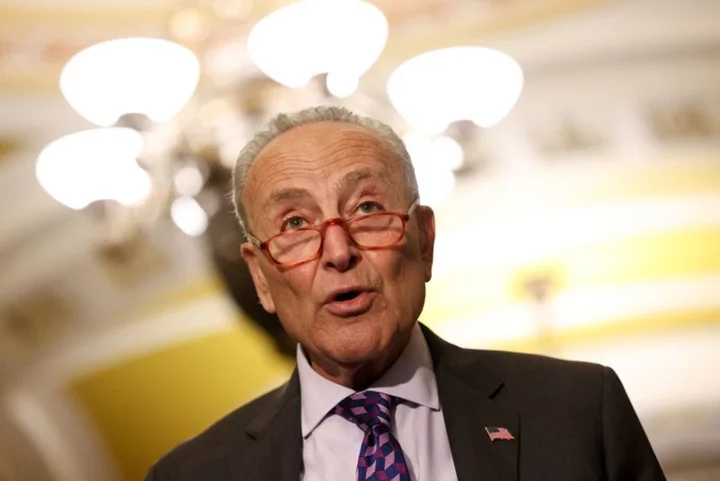By David Shepardson
WASHINGTON U.S. Senate Majority Leader Chuck Schumer plans to lead a bipartisan congressional delegation to China, Japan and South Korea soon, an aide to Schumer said on Tuesday.
It would be a high-profile trip by Schumer, who has repeatedly urged the United States to take a harder line on China and would follow visits by a series of Biden administration officials including Commerce Secretary Gina Raimondo in August.
Punchbowl News reported the trip earlier on Tuesday and said it could take place in October.
Schumer in May launched a renewed effort to address competition from China, planning legislation to boost the U.S. ability to address China on issues from technology to security and threats to Taiwan.
After passing a sweeping bill last year to boost competition with Beijing in semiconductors and other technology, Schumer and Democratic committee leaders said in May they would write legislation to limit the flow of technology to China, deter China from initiating a conflict with Taiwan and tighten rules to block U.S. capital from going to Chinese companies.
Schumer in May said the bill - dubbed "China Competition 2.0" - would broaden last year's "Chips and Science" act. A rare major foray into U.S. industrial policy, the Chips bill signed into law by President Joe Biden last year approved $52 billion for semiconductor research and manufacturing subsidies.
The desire for a hard line on China is one of the few truly bipartisan sentiments in the perennially divided U.S. Congress, and last year's legislation passed with overwhelming support from both Democrats and Republicans.
This year's planned legislation would also seek funding for additional domestic investments in key technology areas and provide a better U.S. alternative to China's Belt and Road global infrastructure initiative, an effort to counter Beijing's international influence.
(Reporting by David Shepardson and Kanishka Singh; Editing by Jonathan Oatis and Sandra Maler)

